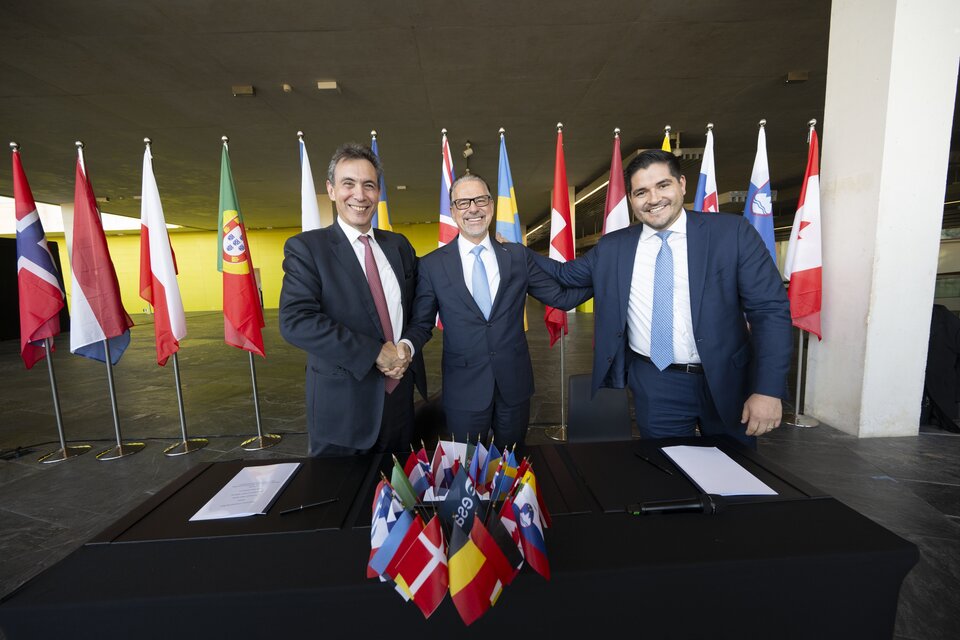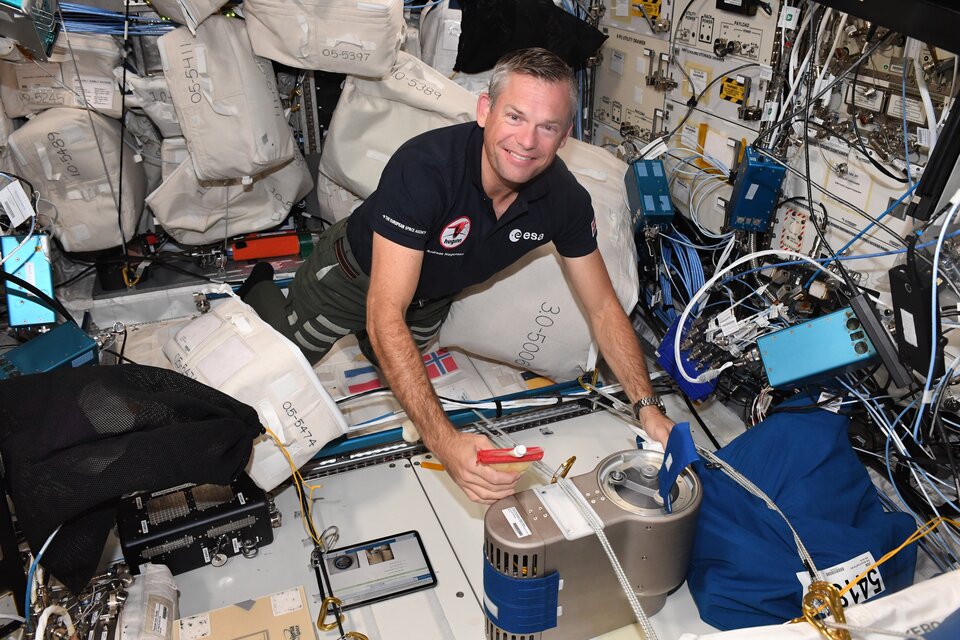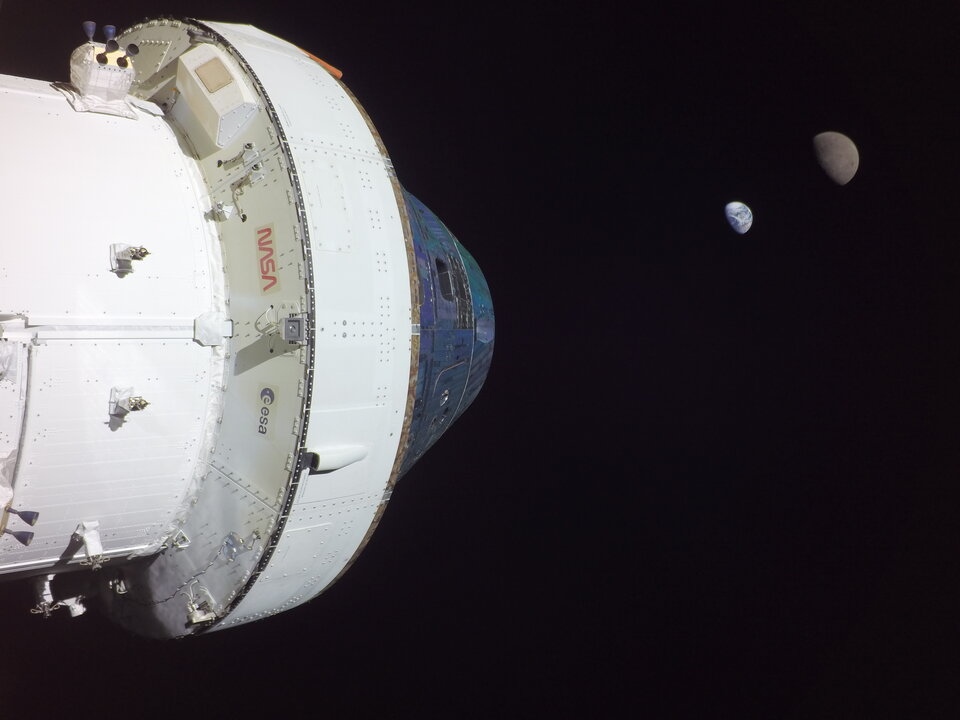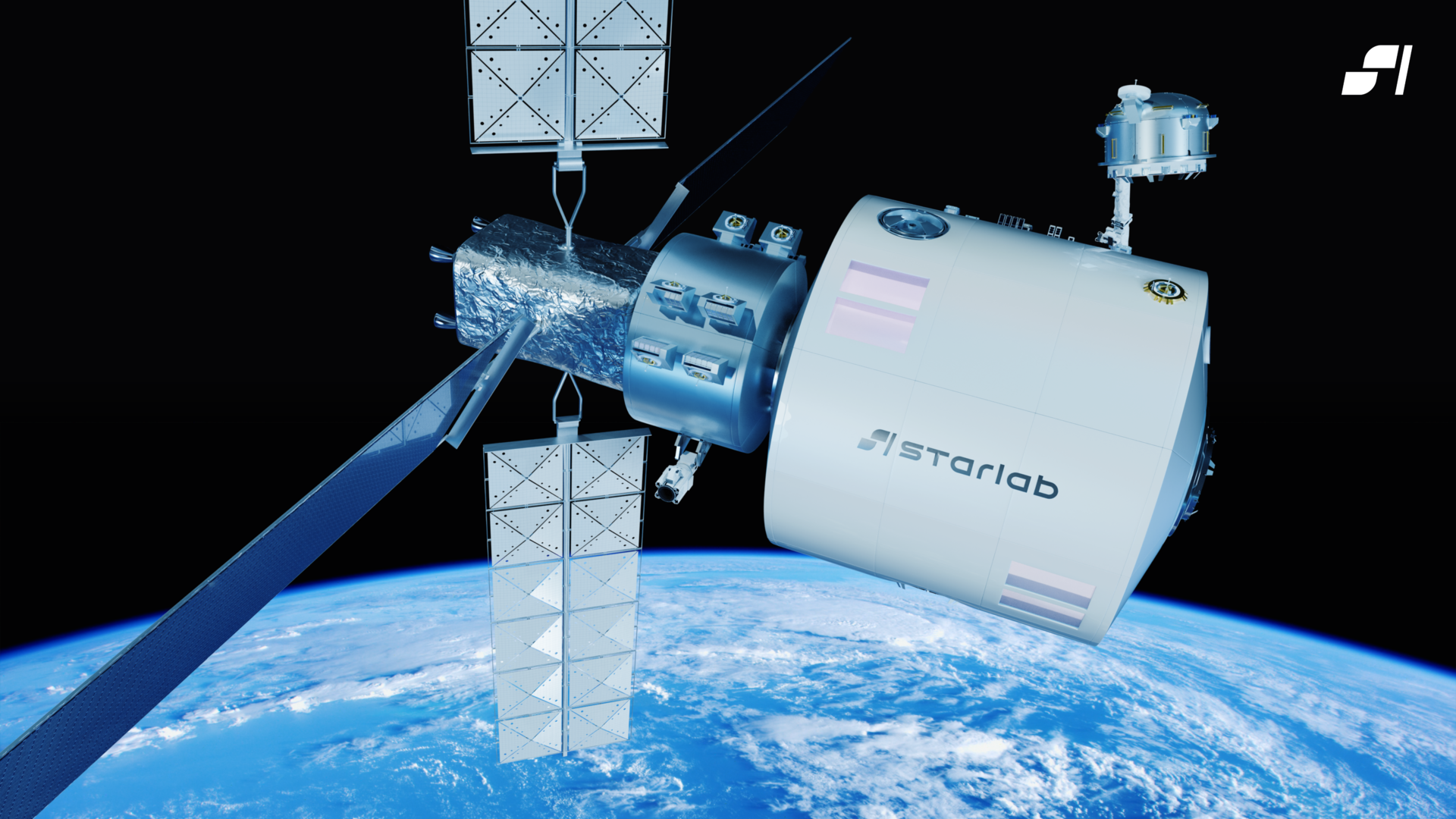Preparing for European commercial presence in low Earth orbit
At ESA’s Space Summit in Seville, Spain, ESA, Airbus and Voyager Space signed a Memorandum of Understanding for the Starlab space station.
The agreement outlines the parties’ intention to foster science and technology development and explore collaboration in low Earth orbit destinations other than the International Space Station.
The collaboration will initially focus on exploring opportunities for access to space for Europe through the Starlab space station. These could include:

- Access to the Starlab space station for ESA and its Member States, for astronaut missions and research activities as well as commercial business development.
- Contributions to research projects on upcoming missions, using European technology and advancing European science – from advanced robotics and artificial intelligence to life sciences and more.
- Establishment of a complete ‘end-to-end’ system with the Starlab space station as a low Earth orbit destination and a potential ESA-developed European cargo and crew transportation system.

European astronauts have been going to the International Space Station for over 20 years, offering European scientists access to a weightless environment via ESA’s Columbus laboratory.
The memorandum of understanding signed reflects ESA’s ambition for a smooth transition from the International Space Station towards sustained exploitation of human and robotic infrastructures in low Earth orbit after 2030, including through commercial services.
“ESA appreciates the transatlantic industry initiative for the commercial Starlab space station, and the potential that its strong European footprint holds for significant European industrial and institutional contributions to, and use of, said station,” said Josef Aschbacher, ESA Director General. “Our teams are looking forward to working closely with the Starlab teams here in Europe and in the US.”
“This agreement with ESA is critical as we continue to foster international collaboration in the space domain and move towards succeeding the International Space Station with Starlab,” said Matthew Kuta, President of Voyager Space. “We look forward to working with Airbus and ESA to extend Europe’s footprint in space and ensure they remain a leader in the new generation of commercial space exploration.”

“At Airbus, we are very pleased that ESA is continuing to look to the future and demonstrating such a keen interest in Starlab,” said Mike Schoellhorn, CEO of Airbus, “Our collaboration on this next-generation space station builds on a long and successful partnership between ESA and Airbus in developing and operating a wide range of crewed and uncrewed spacecraft.”
In the past, Airbus has supplied ESA with iconic spacecraft such as the International Space Station’s Columbus Module, five Automated Transfer Vehicles that flew to the International Space Station and most recently the European Service Module for Orion, Europe’s contribution to NASA’s Artemis missions to the Moon.
About Starlab
Starlab is a commercial space station intended to serve as a successor to the International Space Station. The space station will be developed, built, owned and operated by "Starlab Space", a joint venture between Airbus and Voyager Space. Starlab is expected to launch as soon as 2028, with commercial operations due to start in 2029.


